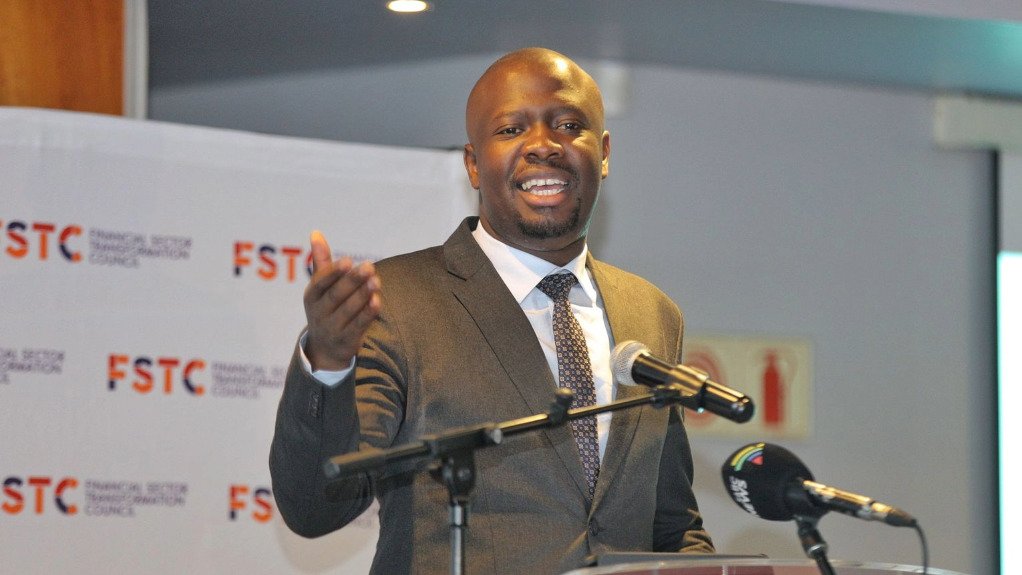Godlimpi defends Transformation Fund while admitting it’s no empowerment ‘silver bullet’
While defending the controversial launch of a R100-billion Transformation Fund, Trade, Industry and Competition Deputy Minister Zuko Godlimpi has also urged lawmakers not to view the proposed instrument as a “silver bullet” for all the prevailing problems associated with the implemention of broad-based black economic empowerment (BBBEE) policies.
Much of the criticism of the fund has hitherto centred on the potential for creating a new avenue for corruption by establishing a State-led fund, as well as whether an aggregated fund would prove more effective than the individual efforts of private companies seeking BBBEE credit for their enterprise supplier development (ESD) investments.
However, several members of the Parliamentary Portfolio Committee on Trade, Industry and Competition also voiced concern during a meeting on June 3 over whether the fund had the necessary scale to support meaningful transformation of the business landscape, where ownership and control continued to be racially skewed.
Godlimpi argued that the fund could not address ongoing structural constraints to the development and sustenance of black-, women- and youth-owned companies and was being proposed, instead, to address weaknesses related mainly to the effectiveness of ESD investments.
Under the Department of Trade, Industry and Competition’s (dtic’s) generic BBBEE scorecard, as well as several sector-specific scorecards, companies can earn some 40 BBBEE points out of 100 for investing 3% of their after-tax profits yearly on ESD activities.
DTIC deputy director-general Susan Mangole told lawmakers that about R20-billion was being directed towards ESD investment yearly.
However, she said these investments were currently failing to have the desired impact, quoting a 2022 BBBEE Commission report indicating that only 61% of ESD targets were being achieved.
Mangole attributed these failures largely to evidence showing that companies were supporting activities outside of their own value-chains, which was limiting the beneficiary firm’s access to markets and undermining their long-term sustainability.
VOLUNTARY FUND
The dtic was, thus, proposing to establish, in phases, a voluntary fund that sought to aggregate ESD funding into a single Transformation Fund, but without adding new financial burdens or compliance criteria.
These aggregated funds – alongside resources that could also be raised by way of Equity Equivalent Investment Programmes by multinationals, public-interest-related investments arising from mergers and acquisitions approved by the Competition Commission, and potential other government funding – would be invested into small and medium-sized enterprises by way of a new special purpose vehicle (SPV) housed under the National Empowerment Fund.
The SPV would be established in partnership with the private sector and would be governed by a nine-member oversight committee and a board appointed by the Minister, with appointees drawn from the public and private sectors.
Mangole indicated that the bulk of the disbursements would be in the form of concessional loans, but that equity investments and grant funding could also be pursued.
She gave no indication as to how concessional the interest rates would be, but indicated that comments received ahead of the May 28 deadline for public input on the department’s draft Transformation Fund document called for the fund to be “developmental in nature, with a high-risk appetite”.
The department did not provide feedback on all the comments received, indicating that it was still processing the submissions. However, it promised to provide the committee with feedback once it had fully categorised the various inputs.
Mangole did reveal, however, that transparency and good governance emerged as an important theme, alongside calls for effective monitoring and evaluation.
Despite its developmental character, the department was still aiming for the fund to be self-sustaining, as well as to be in a position to recycle repayments received into new entities.
It would specifically target companies in the renewables, mining services, agro-processing, information and communications technology, infrastructure, manufacturing and business process outsourcing sectors, and would seek to support township and rural enterprises, alongside black industrialists.
No firm timeframe was given for the fund’s establishment apart from a target of having the SPV’s systems in place and the appointments finalised before the end of the current fiscal year.
It would then seek to enter into partnership agreements with those entities that have expressed a willingness to redirect their ESD funding towards the Transformation Fund.
CONCERNS RAISED
While most committee members did not dismiss the concept of a proposed fund, there were nevertheless concerns raised about the effectiveness of the initiative and whether it would be yet another failed attempt at addressing racial exclusion.
After the comment period closed, some commentators began making their concerns public, including the Centre for Development and Enterprise’s Ann Bernstein, who has described the proposed fund as “a lose-lose proposition” that will fail to achieve its stated objectives.
“The goal of creating a more inclusive and bigger economy in which historically disadvantaged South Africans own and manage a much larger share of businesses is not in dispute. But this Fund is not the way to achieve it,” Bernstein said in her submission.
“The Transformation Fund proposal is based on an inaccurate assessment of what transformation requires, and an equally misguided belief in the State’s capacity to deliver it,” she added.
Article Enquiry
Email Article
Save Article
Feedback
To advertise email advertising@creamermedia.co.za or click here
Press Office
Announcements
What's On
Subscribe to improve your user experience...
Option 1 (equivalent of R125 a month):
Receive a weekly copy of Creamer Media's Engineering News & Mining Weekly magazine
(print copy for those in South Africa and e-magazine for those outside of South Africa)
Receive daily email newsletters
Access to full search results
Access archive of magazine back copies
Access to Projects in Progress
Access to ONE Research Report of your choice in PDF format
Option 2 (equivalent of R375 a month):
All benefits from Option 1
PLUS
Access to Creamer Media's Research Channel Africa for ALL Research Reports, in PDF format, on various industrial and mining sectors
including Electricity; Water; Energy Transition; Hydrogen; Roads, Rail and Ports; Coal; Gold; Platinum; Battery Metals; etc.
Already a subscriber?
Forgotten your password?
Receive weekly copy of Creamer Media's Engineering News & Mining Weekly magazine (print copy for those in South Africa and e-magazine for those outside of South Africa)
➕
Recieve daily email newsletters
➕
Access to full search results
➕
Access archive of magazine back copies
➕
Access to Projects in Progress
➕
Access to ONE Research Report of your choice in PDF format
RESEARCH CHANNEL AFRICA
R4500 (equivalent of R375 a month)
SUBSCRIBEAll benefits from Option 1
➕
Access to Creamer Media's Research Channel Africa for ALL Research Reports on various industrial and mining sectors, in PDF format, including on:
Electricity
➕
Water
➕
Energy Transition
➕
Hydrogen
➕
Roads, Rail and Ports
➕
Coal
➕
Gold
➕
Platinum
➕
Battery Metals
➕
etc.
Receive all benefits from Option 1 or Option 2 delivered to numerous people at your company
➕
Multiple User names and Passwords for simultaneous log-ins
➕
Intranet integration access to all in your organisation




















